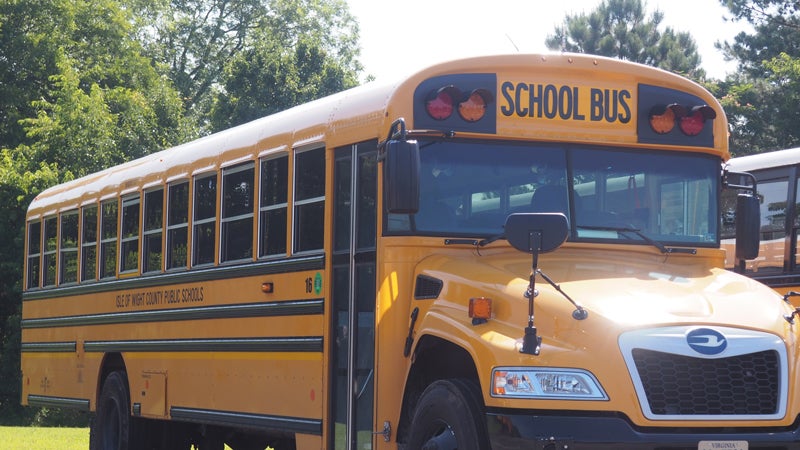IWCS: School bus shortage improving
Published 4:28 pm Thursday, February 15, 2024

- File photo
All but one of 11 buses Isle of Wight County Schools pulled from the road three months ago are back in service.
IWCS Transportation Coordinator Matthew Fike had briefed the School Board in November on the frequent breakdowns plaguing Isle of Wight’s fleet of 65 school buses, 44% of which were manufactured in 2010 or prior. Taking the 11 then-nonfunctioning buses off the road last fall left no margin for error with 54 routes to cover daily.
“Things have improved considerably,” Fike told the School Board at its Feb. 8 meeting.
The school division’s budget had allocated $68,000 to fix out-of-service buses. According to Fike, the one remaining out-of-service bus needs a new engine estimated to cost more than $28,000.
Fike said the division’s fleet services doubled production last year and is on track to triple its productivity this year compared to the 2021-22 school year. In January, the division’s mechanics completed their first in-house engine installation in more than a decade, adding a 6.8 liter propane engine to a bus that had been inoperable since the 2022-23 school year.
Fike, in November, said the division will eventually need to purchase a dozen new buses to replace those dating from 2004 to 2008, estimating the cost at $1.8 million in total. fAmong them is a circa-2005 bus that, as of three months ago, had more than 311,000 miles on its engine. Virginia Department of Education guidelines specify buses should not exceed 15 years of age or 300,000 miles.
Fike, in November, said two new buses purchased last April were expected to be delivered this month.
In addition to maintaining its aging fleet, Fike’s department has also contended with driver vacancies. Fike told the School Board Feb. 8 that he’d lost four bus drivers as of that date.
When vacancies occur, Fike said, the division first looks to hire a substitute. If none can be found, the bus route experiencing the driver vacancy is divided among three and sometimes four different buses. Double routes, which frequently cause students assigned to the second run to arrive late to school and even later getting home, are a last resort, Fike said.
“There is one double-back that does occur on a regular basis,” Fike said.
Students assigned to the late run, which travels to and from the combined Smithfield Middle School and Smithfield High campus, has been dropping students off around 7:30 each morning, roughly 5 to 10 minutes late, Fike said.





